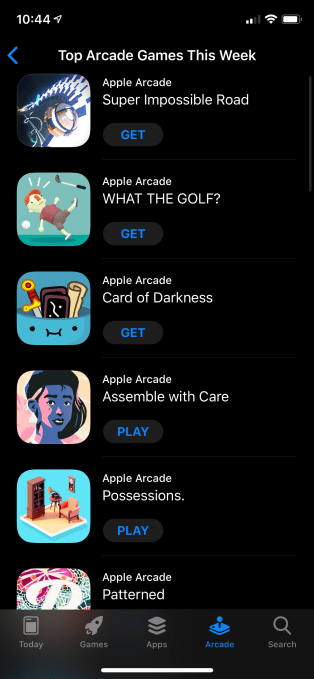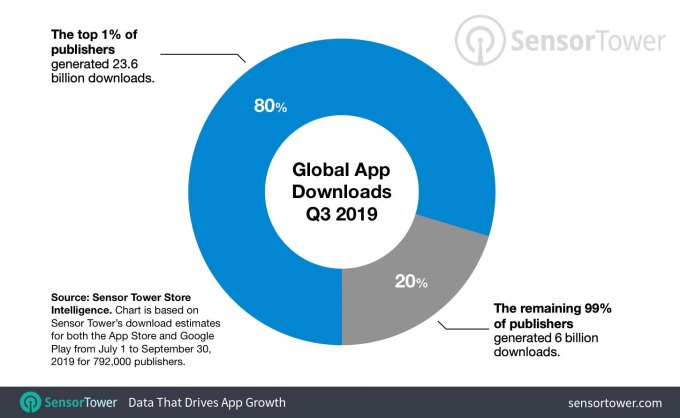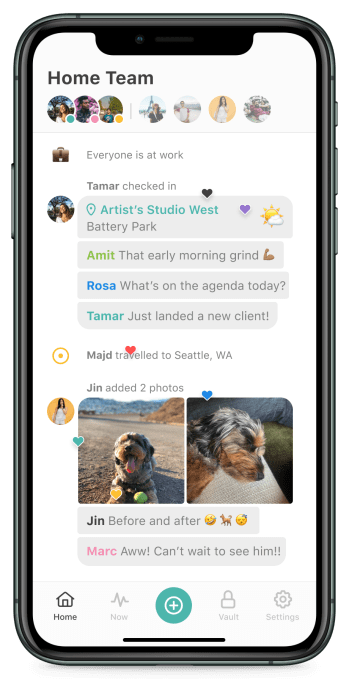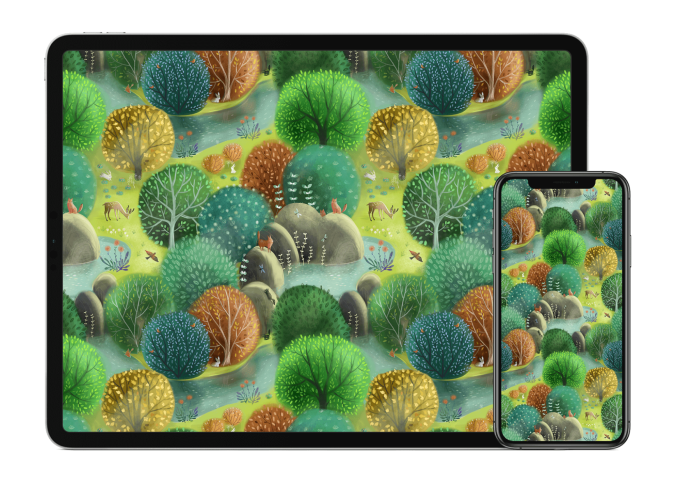Welcome back to This Week in Apps, the Extra Crunch series that recaps the latest OS news, the applications they support and the money that flows through it all. What are developers talking about? What do app publishers and marketers need to know? How are politics impacting the App Store and app businesses? And which apps are everyone using?
This week, we’re discussing the impact of the CFIUS investigation into TikTok, the further fallout of Apple’s vaping app ban, updates to Apple Arcade and Google Play Pass subscription-based app stores, Apple’s breaking changes that rolled out without warning (thanks, Apple!) and a shady app that reached the top of the App Store thanks to a big Kardashians-led endorsement, among other things.
Headlines
TikTok separates further from its Chinese parent
One of the world’s most downloaded and used apps, TikTok, is under a national security review in the U.S. because of its Chinese roots. TikTok parent company, ByteDance, is a China-based operation — something that has raised concerns because of its significant access to U.S. users’ personal data and potential censorship issues.
The company was already working to separate itself further from China before the Committee on Foreign Investment in the United States (CFIUS) began its investigation. For example, it separated the TikTok product, business development, marketing and legal teams from those of its Chinese app, Douyin, and hired consultants to audit how it’s storing U.S. users’ personal data. Following the investigation, it hired more U.S. engineers and set up a U.S.-based team to oversee data management, Reuters reported.
The question now is whether not these moves — along with a promise to not store U.S. user data in China — will be enough. The app collects data including profile information such as name, age, email and phone number, provided by users, as well as photos, videos, and location. Many of TikTok users are younger teens and college students.
Even if you’re “too old” to care about TikTok, CFIUS investigation’s conclusions here will have a larger impact on the global app industry, as they’ll set precedents as to how foreign powers can compete in U.S. app stores.
Oops: Apple releases breaking changes with no warning
Apple this week introduced new server-to-server notifications for subscriptions that allowed developers to receive real-time updates in a subscription’s status, so they could provide customized experiences for subscribers. Only one problem with the release: Apple broke most server notifications implementations as a result. Developers weren’t given any warning about the APIs that were “scheduled for deprecation,” either, which is not typically how web APIs are managed. To add icing to the cake, not only were the changes released without warning, they were also rolled out on a Friday — there goes the weekend. Thanks, Apple.
The vaping app ban backlash continues
Has Apple crossed the line between protecting its users from dangerous apps to just turning into an overbearing parent policing adults’ ability to make their own choices? Over the past couple of weeks, several have said the latter. Now concerning are arising about what this means for the overall industry and whether or not decisions like this should even be in Apple’s hands in the first place.
As you may recall, Apple earlier made a controversial decision to remove all 181 vaping-related apps from its App Store in wake of news from the CDC about the 47 vaping deaths and thousands of lung injuries. Some early studies point to Vitamin E acetate, an addictive used in THC oil, as the cause. But Apple isn’t worrying about the details of what’s dangerous and what’s not — it just wiped out anything vaping-related, including things like Bluetooth-connected apps that let users control aspects of their vaping devices, like the lights, heat, and updates to the firmware. There’s no backup plan here for those app makers, since web apps don’t offer the same level of functionality. Plus, the ban is also impacting devices used to distribute medication as well as apps designed to help people cut down and eventually quit smoking and vaping by tracking their nicotine usage.
For app entrepreneurs, Apple’s decision in one fell swoop also just destroyed half the vaping app market as their apps will now only run on Android.
The question now is whether or not any of this should be Apple’s decision? While you may personally applaud a vaping app ban — or simply not care because it doesn’t affect you — Apple has made other controversial choices that have a more serious impact. Like when it kicked out the app that aided Hong Kong protestors, for example.
Apple Arcade and Google Play Pass expand their collections
Apple’s subscription-based gaming store and Google’s rival subscription app store, Google Play Pass, have both added new apps since their debuts. Now, the two companies are making users aware of their ongoing efforts to beef up their respective collections. Apple this week shared a video that highlighted over a dozen new Apple Arcade releases that hit this month — the first time it’s released a compilation video featuring multiple titles since its launch.
Meanwhile, Google Play Pass added 37 more apps to bring its total to 274.
What we don’t know yet, is how well the two services are working — or whether they will benefit developers in the long run. And because neither has a Top Charts section, it’s not even clear what apps are most popular or how many downloads they’re seeing.
Apple Arcade adds a “Top Games” chart… well, sorta… OK, not really
 Apple took a step to address the above problem with a new section in Apple Arcade called “Top Arcade Games This Week.” We had argued earlier that the lack of visibility into the popularity of titles on Arcade was a disservice to users who wanted quickly and easily find the most popular titles.
Apple took a step to address the above problem with a new section in Apple Arcade called “Top Arcade Games This Week.” We had argued earlier that the lack of visibility into the popularity of titles on Arcade was a disservice to users who wanted quickly and easily find the most popular titles.
But this new section, while fun, doesn’t solve the problem. Top Games, based on what? Downloads? Editorial curation? Both? Is there going to be an API for it?
It’s common knowledge that the App Store’s Top Charts are based on a combination of downloads and velocity. And that data is accessible to third parties like App Annie, Sensor Tower, Apptopia and others who use it to come up with download estimates.
But a “Top Games This Week” section is not the same thing as a real Top Charts section. And by limiting it to only a week’s time, it provides no real insight into whether or not the Arcade is able to produce a lasting hit the way the App Store can, or what those hit titles may be.
Apple has distanced itself from promoting the Top Charts as a means of app discovery for years now. With its big App Store makeover, it shifted its focus more to editorial, curation, and recommendations, rather than downloads. But for a smaller store like Arcade, Top Charts could have value as they would feature some of the best titles from an already exclusive collection — that’s something people would want to see.
Why was a shady photo editor the top app of October?
Sensor Tower just released its analysis of the top U.S. (non-game) apps in October 2019, and an odd title came in at number one: Gradient Photo Editor. Yep, a photo app. This list of the Top Downloaded Apps usually includes the like of Facebook, Instagram, YouTube, Messenger, TikTok, Snapchat, Netflix, and WhatsApp competing for top spots. If anyone else sneaks in, it’s usually much further down the list — not as a No. 1 app. But in October, Gradient Photo Editor saw nearly 5 million installs, Sensor Tower said, which shot it to the top of the charts.
Sensor Tower’s report didn’t explain why this app, of the many, many photo editors out there, made it this far. As it turns out, it’s because it had a good gimmick that helped it go viral. The app shows you your celebrity lookalike — and wow, people sure do love apps that are all about themselves. After uploading your selfie, the app uses AI to turn your face into that of a celebrity you may resemble.
However, the real boost came from Gradient’s paid-for-advertising. The app bought its way to the top by getting the Kardashians to endorse it. According to Newsweek, Kylie Jenner, Kim Kardashian, Kourtney Kardashian, Khloe Kardashian, and Scott Disick all posted their own Gradient results on Instagram with an #ad hashtag, which means their posts were paid-for advertisements. Other celebs also tweeted and posted about the product, including Jimmy Kimmel and Diplo.
Fun and games aside, the app also raised privacy concerns as its license granted the unknown app maker, Ticket to the Moon, Inc., to leverage some user data to “provide, improve, test, and monitor the effectiveness of Gradient” and “develop and test new products and features.” The app maker was also found to be associated with Chinese investment firm Meihua Capital Partners. Neither the developer nor the investors responded to reporters’ inquiries.
Tl;dr: Don’t get your app recommendations from the Kardashians. Try Common Sense Media instead.
ICYMI: The top 1% of app store publishers drive 80% of new downloads
The current app store ecosystem doesn’t favor the indie developer. According to new data from Sensor Tower, the top 1% of publishers globally accounted for a whopping 80% of the total 29.6 billion app downloads in the third quarter of 2019. That means just 20%, or 6 billion, downloads are left for the rest of the publishers. This bottom 99%, which equates to roughly 784,080 publishers, averaged approximately 7,650 downloads each during the quarter. To put that in context, that’s less than one-thousandth of a percent of the downloads Facebook generated in the quarter (682 million). TechCrunch covered the full Sensor Tower report here if you want to know more.

App of the Week: Cocoon
Reviewed this week by TechCrunch writer Lucas Matney, Cocoon is a new social app developed by ex-Facebook employees. Designed for small groups, like long-distance families or close friends, the app is similar to Path or Life360. But it’s not a social network, it’s for private chat only.
Cocoon is well-designed with several helpful features like ambient status updates, “thinking of you” silent notifications, automatic flight tracking, photo vaults, and automatic recording of interesting moments (like “Everyone is at Work” or “Yesterday, Rose walked the most with 12,345 steps.”), among other things.
But Cocoon has competition from incumbents like Messenger, WhatsApp, iMessage, and other existing chat applications, which may make growth difficult. After all, a chat app can’t be useful until everyone you want to connect with agrees to join. We’d almost rather see Apple buy Cocoon and integrate its features into iMessage instead so we don’t have to download a new app.

Game of the Week: Patterned (Arcade’s biggest hit?)
It’s not new this week — in fact, it’s been a part of Apple Arcade’s debut lineup. But the relaxing puzzle game Patterned is worth now noticing because it has quietly proven itself to be an Apple Arcade hit over the past several weeks.
Okay, we don’t have Top Charts data to prove anything definitively (ahem, see above), but we’ve noticed this title is well-ranked with a nearly perfect 4.8-star rating in addition to being well-reviewed on the wider web. However, what’s really notable here is how many Arcade subscribers seem to be playing.
While some other Apple Arcade games rank similarly, Patterned has more reviews than other top Arcade titles, with some 3,617 reviews, as of the time of writing.

For comparison’s sake among other Apple Arcade big names, Sayonara Wild Hearts is a 4.8 across only 1,454 reviews. Rayman Mini is a 4.5 across a much smaller 216 reviews. Assemble with Care is a 4.8 across 2,168 reviews. What the Golf? is a 4.6 across 1,206 reviews. Tint is a 4.5 across 248 reviews. The Enchanted World (which is currently being promoted as the Arcade banner) has a 4.0 across 119 reviews. Where Cards Fall has a 4.8 across a mere 12 reviews. Sneaky Sasquatch is a 4.8 across 1,189 reviews. Overland is a 3.1 across 512 ratings. Of course, not all those are in the same genre as Patterned nor released at the same time, but it does give an indication of some of the top games that users are playing and enjoying.
So what’s the secret to Patterned success? Probably a combination of factors, including its universal appeal, and its unique and calming nature. It also plays off a larger App Store trend: consumer interest in meditative apps. Games don’t have to fast-pasted, competitive or achievement-oriented to be fun, this game proves.